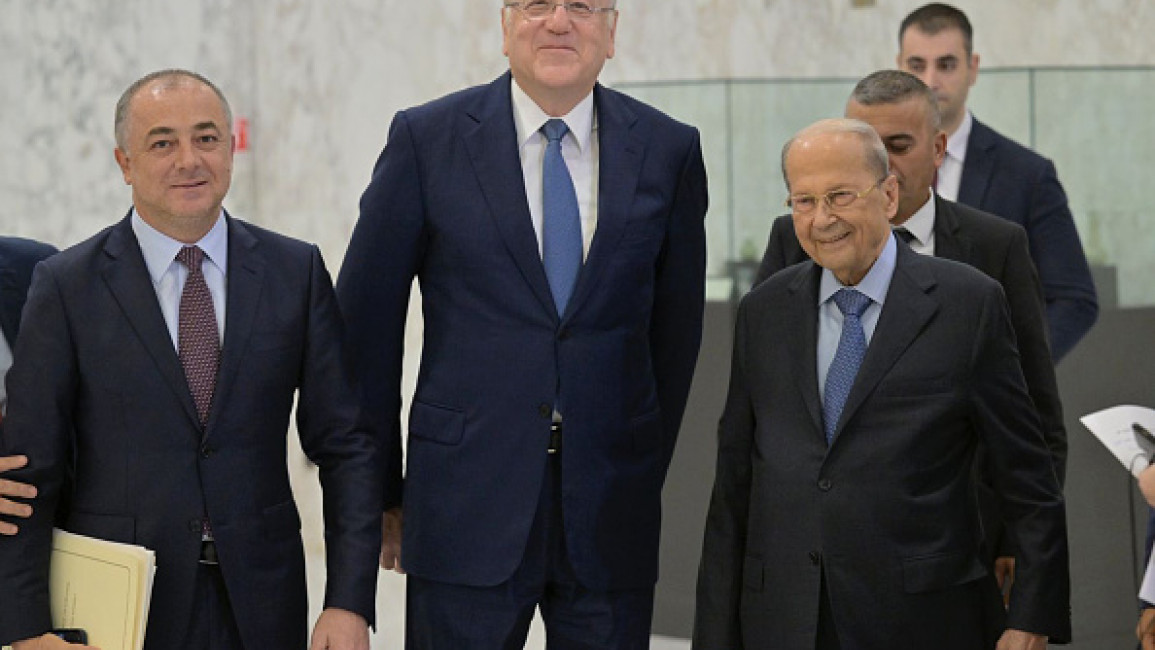Lebanon's 'Change MPs' protest 'unconstitutional' handling of maritime deal with Israel
"Change MPs" – a bloc of independent MPs within the Lebanese parliament – have registered their opposition to the Lebanese government's handling of the maritime deal with Israel and plan to introduce a motion to debate it in parliament, representatives told The New Arab on Tuesday.
The deal, accepted by both Lebanon and Israel on Tuesday, demarcates the maritime boundaries between the two countries. The agreement clears the way for the extraction of what is suspected to be sizeable hydrocarbon reserves in the area previously under dispute.
The maritime deal is the culmination of over a decade of on-and-off negotiations, complicated by the fact that Lebanon and Israel are still technically at war. A previous proposal in 2013 fell through after the Lebanese side scuttled it at the last second and negotiations did not restart in earnest until 2021.
"We have to push to have this agreement discussed in parliament. We will make a letter to push in this way, we want to study the agreement," Melhem Khalaf, a Change MP, told The New Arab. Khalaf said the Change MPs were still studying when to send the letter.
"The maritime deal was done in complete secrecy, and as an MP, along with my colleagues, we call on sharing the details with parliament so we can review and assess. It's unfair, unjust, and unconstitutional to keep the Lebanese people and the MPs in the dark," Najat Aoun, an independent MP, told The New Arab.
It is unclear how the presidency will proceed with ratifying the maritime deal domestically. The vice speaker of Lebanon's parliament Elias Bous Saab said on Tuesday that the president will "provide the necessary consultations to discuss the final version of the agreement."
Khalaf pointed to Lebanon's constitution as saying parliament must be consulted on international treaties.
Specifically, constitutional article 52 says that the government must "bring [treaties] to the attention" of parliament and that treaties that "cannot be annulled on a yearly basis" must be ratified by parliament.
The deal – lauded as a victory by Lebanon's leadership – has sparked additional ire among the Change MPs for what they saw as "disastrous" concessions to Israel.
"The negotiations were handled in a disastrous way, one compromise after the other, including giving up Karish [gas field] and Line 29 without a proper fight," Mark Daou, an independent MP, told The New Arab.
Lebanon's leadership announced in 2020 that it would insist on Line 29, which would have expanded its territorial claims significantly. However, it quickly dropped this position once negotiations began.
"This is a line made via compromise, it doesn't have a legal or technical basis. Tomorrow, when we want to negotiate with Syria or Cyprus, they'll tell us 'With Israel you didn't rely on a legal basis, you want to use one with us?'" Khalaf said.
MPs also raised doubts about how the revenues of any natural gas will be dealt with by the state, citing rampant corruption within the government as a cause for concern.
"We believe our worst case scenario in Lebanon is that the corrupt political class will try to use these proceeds to re-energise its capabilities to dominate local politics through clientelism and systematic corruption like they did over the last 30 years," Daou said.
Lebanon's energy sector is notorious for corruption. Its state power grid can only give up to three hours of electricity a day – despite 40 per cent of its sovereign debt having gone to electricity-related expenditures.
"There are safeguards that should be voted into law, such as creating a sovereign fund for the proceeds of the oil and gas exploration and re-activating the regulatory authority for the oil and gas sector," Daou added.
The reserves in the Qana gas field, which will be explored and extracted by TotalEnergies on Lebanon's behalf, remain unproven.
If reserves do indeed turn up, the revenues and hydrocarbon are hoped to be a boon for Lebanon, which suffers from a deep economic crisis and an energy shortage.



